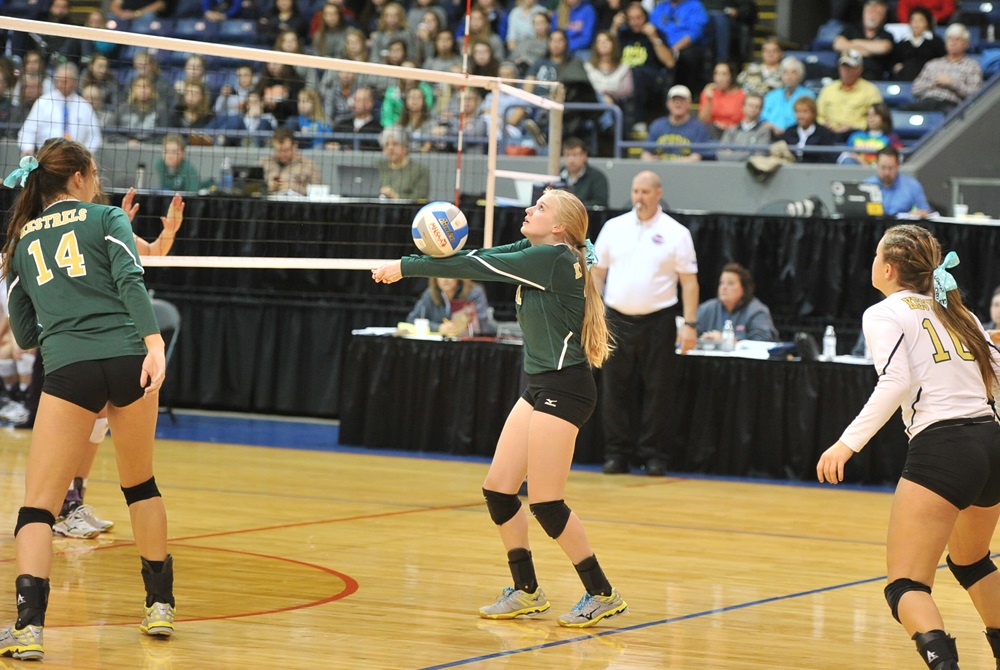
Be the Referee: Always 1st-and-Goal
October 3, 2018
This week, MHSAA assistant director Brent Rice explains how every series of high school football overtime in Michigan begins with 1st-and-Goal.
Be The Referee is a series of short messages designed to help educate people on the rules of different sports, to help them better understand the art of officiating, and to recruit officials.
Below is this week's segment – Always 1st-and-Goal - Listen
In Michigan, football overtime for each team starts with 1st-and-goal at the 10-yard line. Other states which allow overtime to begin anywhere from the 10 to the 25-yard line, and in some of those states, you could actually pick up a first down while on offense.
But Michigan is always 1st-and-goal. Even in those situations where a dead ball foul from the end of the first team’s possession in an overtime may start the second team’s series at the 25 – it is still 1st-and-goal.
The only way a team on offense can pick up a first down in overtime is on a penalty providing yardage plus an automatic first down, and those are only the roughing calls – roughing the passer, the kicker, the holder and the long snapper.
Past editions
September 27: Unique Kickoff Option - Listen
September 20: Uncatchable Pass - Listen
September 13: Soccer Rules Change - Listen
September 6: You Make the Call: Face Guarding - Listen
August 30: 40-Second Play Clock - Listen
August 23: Football Rules Changes - Listen

Be the Referee: Back Row Setter
By
Paige Winne
MHSAA Marketing & Social Media Coordinator
November 12, 2024
Be The Referee is a series of short messages designed to help educate people on the rules of different sports, to help them better understand the art of officiating, and to recruit officials.
Below is this week's segment – Back Row Setter - Listen
We’re on the volleyball court for today’s “You Make the Call.”
Team A serves the ball over net. Team B’s number 9 passes, or bumps the ball up toward the net, where number 2 tips it over for a point.
But number 2 is a back row setter and moved to the front row on the serve.
Is this a legal play?
If you said it depends … you are correct.
A back row setter can move to the front row and play the ball over the net as long as the entire ball is NOT above the net.
If the ball is completely above the net, then the back row setter is not allowed to play it over the net from the front row.
Previous 2024-25 Editions
Nov. 5: Football OT - Listen
Oct. 29: Officials Registration - Listen
Oct. 22: Volleyball Serve - Listen
Oct. 15: "You Make the Call" - Soccer Offside - Listen
Oct. 8: Roughing the Passer - Listen
Oct. 1: Abnormal Course Condition - Listen
Sept. 25: Tennis Nets - Listen
Sept. 18: Libero - Listen
Sept. 10: Cross Country Uniforms - Listen
Sept. 3: Soccer Handling - Listen
Aug. 24: Football Holding - Listen

